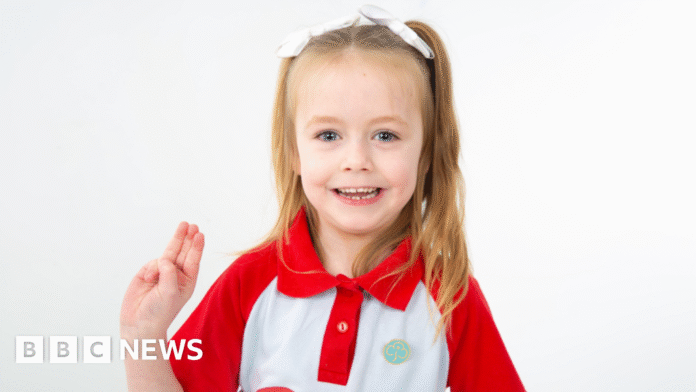Autistic children and young people from south Wales have created a photography exhibition to try and change negative attitudes.
“But you don’t look autistic” includes portraits of a number of neurodivergent adults and children.
Jade West from Rewild Play, a Newport charity, said neurodivergent children were “bombarded with messages of can’t” but the exhibition was trying change that mindset.
Fifteen-year-old Liam felt “pride” that his portrait features in the exhibition and said he wanted to take part in response to other people’s reaction when he tells them he is autistic: “A lot of the time, they just speak to you as if you’re not as smart as them… or you just can’t do the things they do.
“Normally it’s like, ‘oh, that’s sad’… it’s condescending.”
Liam said the support he received from the charity helped him “accept the fact” he is autistic.
He is on the waiting list for an official diagnosis, but said he had been told by professionals that he exhibits autistic and attention deficit hyperactivity disorder (ADHD) traits.
Mackenzie, 16, said taking photographs and interviewing those sitting for them helped him learn about the “different aspects of autism”.
Diagnosed at eight years old, he has been subjected to negative attitudes: “It’s really annoying when people kind of treat you as you’re like, a little bit less.”
The initial idea for the exhibition stemmed from a conversation Jade had with her daughter that made her recognise the need for “positive representation”.
Jade was diagnosed with ADHD at the age of 42 and is on the waiting list for an autism diagnosis.
The self-described “chatty” 45-year-old said stereotypes meant people do not understand her diagnosis, telling her “you can’t be autistic”.
The mother-of-two’s photograph, also featured in the exhibition, aimed at tackling “misconceptions”.
She said: “I still don’t voluntarily offer up the information because I’m going to get judged.
“Maybe there’s a part of me that wanted the positive representation for myself.”
Although both Liam and Mackenzie admit feeling uncomfortable by featuring in the project, they felt strongly they wanted to be part of a change in people’s attitudes.
Liam explained that it was “very hard” when people’s views could be “negative a lot of the time”.
Mackenzie added: “People seem to think that the only form of autism is the kind of one where you’re, like, really struggling.
“It’s really annoying because people with autism can do things. And a lot of people who make really good things have autism.”




